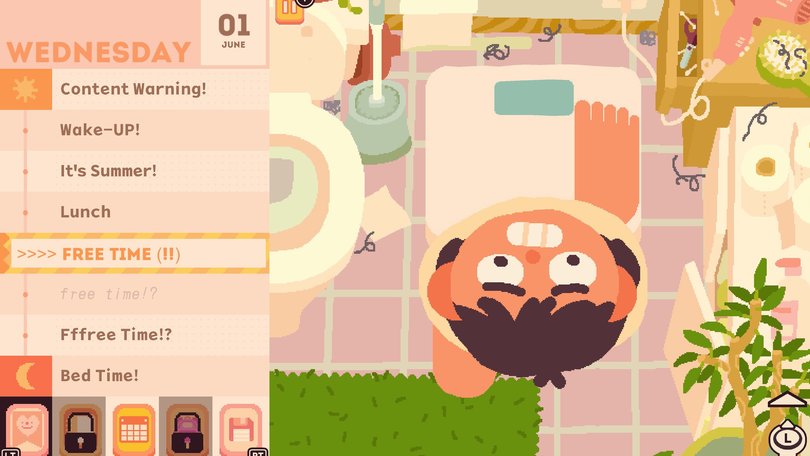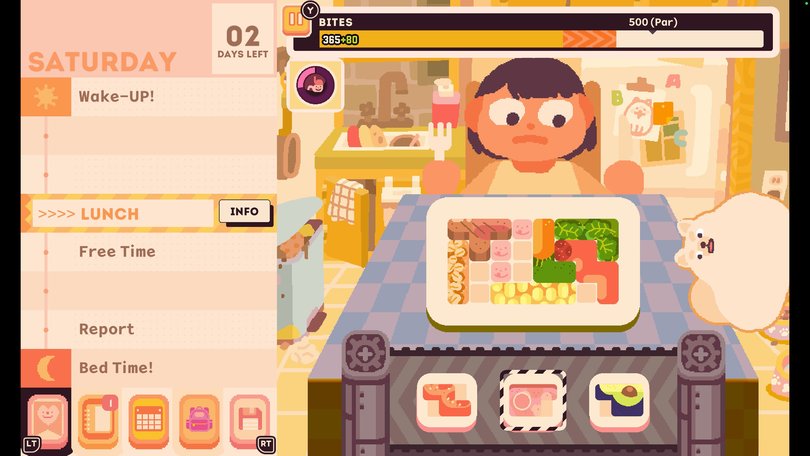THE NEW YORK TIMES: Jenny Jiao Hsia counted calories as a teen, then created ‘Consume Me’, a game about it
THE NEW YORK TIMES: ‘Our aim was to depict a spectrum. You don’t have to end up being rail thin to qualify as having an eating disorder.’

In a video game landscape filled with fast-paced first-person shooters focused on parachuting onto rooftops, finding the shiniest machine gun and taking down relentless foes, Consume Me goes somewhere more personal.
A semiautobiographical story about the developer Jenny Jiao Hsia’s high school and college days, Consume Me asks the player to find the balance between completing Jenny’s chores, keeping up with her studies, battling her rival at school, winning over her crush and counting calories to keep her weight down and appease her nagging mother.
“I actually feel real life is more interesting than making up something completely fictional,” said Jiao Hsia, 31, who made the game with AP Thomson. “When I start making up a fake character, it just feels too much like something you watch in a TV show.”
Sign up to The Nightly's newsletters.
Get the first look at the digital newspaper, curated daily stories and breaking headlines delivered to your inbox.
By continuing you agree to our Terms and Privacy Policy.Consume Me, released for the PC last week, has an almost confectionery outer shell, drawn in a childlike cartoon style that belies its exploration of disordered eating.
It is attempting something fairly uncommon by diverging from traditionally macho games like Grand Theft Auto and Call of Duty to explore something more grounded in the feminine. The approach appears to be working: Consume Me picked up several accolades, including the grand prize, at this year’s Independent Games Festival.

Consume Me nods back to the confessional style of YouTube videos from the early 2000s, but it also contains skill-based gameplay in its six-hour run time, adapting scenes from Jiao Hsia’s life in inventive ways.
The calorie-counting shows up as a form of food Tetris, with Jenny able to fit only so many shapes into her lunchbox.
Required summer reading becomes a minigame about aiming Jenny’s eyes at the book as her head spins around the room in a literal representation of how her attention drifts.
Thoughts of her mom’s scolding voice, or her cute Pomeranian, appear as obstacles she must dodge. Applying makeup is a test of quick reflexes and how skillfully Jenny can avoid the cockroaches crawling in her New York City apartment.
“I get a sense that people don’t take this particular sort of game seriously,” Jiao Hsia said. “They write off the game based on the friendly, approachable look, assuming that there’ll be little to no gameplay or that it’ll be easy.”
Jiao Hsia began her time at New York University studying premed but switched to game design when the pressures rose. After recalling the period when she obsessively counted calories as a teenager, it occurred to her that video games were very numbers-centric and that her past experiences could be turned into a narrative.
She said that given the sensitive subject matter, she wanted to show disordered eating in a nuanced way, beyond common depictions of patients who are severely ill and perhaps even hospitalised.
“I feel eating disorders should not only be depicted in that degree of severity,” Jiao Hsia said. “Our aim was to depict how it’s not black and white. You don’t have to end up being rail thin to qualify as having an eating disorder.”
Cody Mejeur, an assistant professor of game studies at the University at Buffalo, said it was rare for games that intersect with diet and exercise to critically examine those topics.
“Most games are about predominantly skinny, beautiful people going on adventures and eating as much food as they want,” Mejeur said. “Or they’re exercise games that promote health and wellness, but often with a lot of either explicit or implicit fatphobia.”
Mejeur compared Consume Me’s autobiographical approach to a few other independent games. Night in the Woods, by Bethany Hockenberry, Scott Benson and Alec Holowka, depicts the daily life of a college dropout who returns to her small hometown, partaking in activities like eating pizza and playing in a rock band. In Dys4ia, by Anna Anthropy, a collection of minigames approximates her experience of transitioning.
Eventually, Consume Me does zoom out to grander themes. Dieting becomes an afterthought as Jiao Hsia moves onto brighter horizons.
“It’s kind of difficult to understand that dieting mentality without everything else,” Jiao Hsia said. “Jenny is an overachiever and wants to get everything done well, and dieting is just one facet of what society expects of you.”
Consume Me feels like it is forming a unique trauma bond between player and creator, said Kishonna Gray, a University of Michigan professor of technology.
“We feel seen and connected when we play games like this,” Gray said. “No, we aren’t shooting anyone. It’s actually a part of the healing arsenal, and this is where games like this add so much value to human life.”
This article originally appeared in The New York Times.
© 2025 The New York Times Company
Originally published on The New York Times
